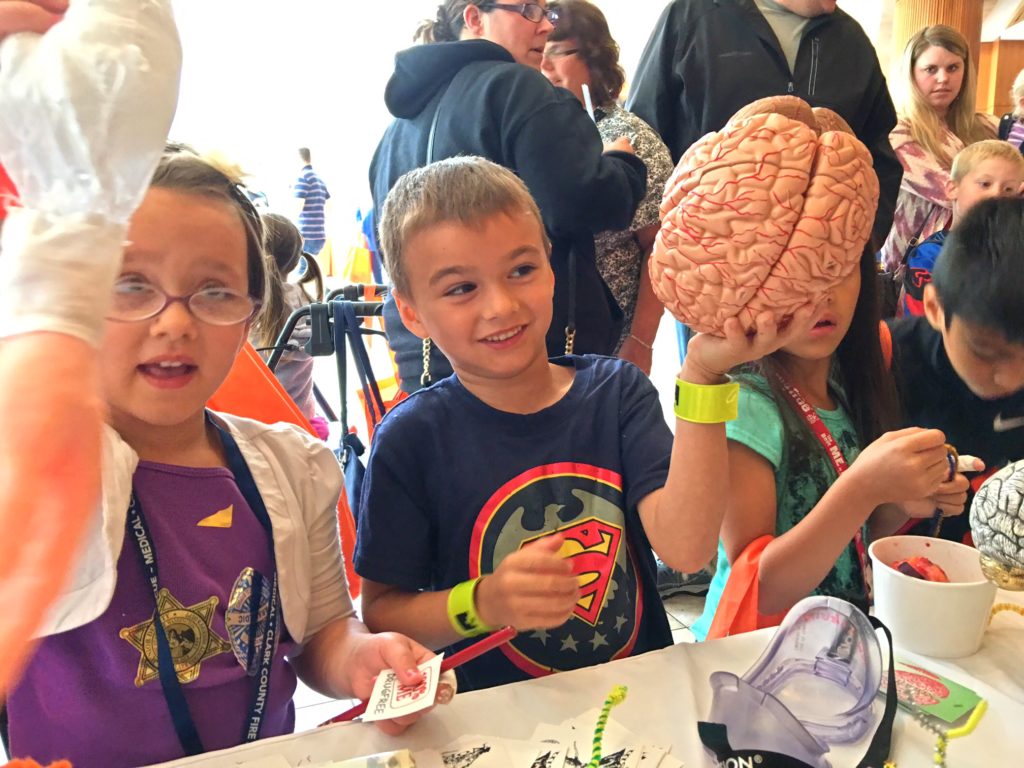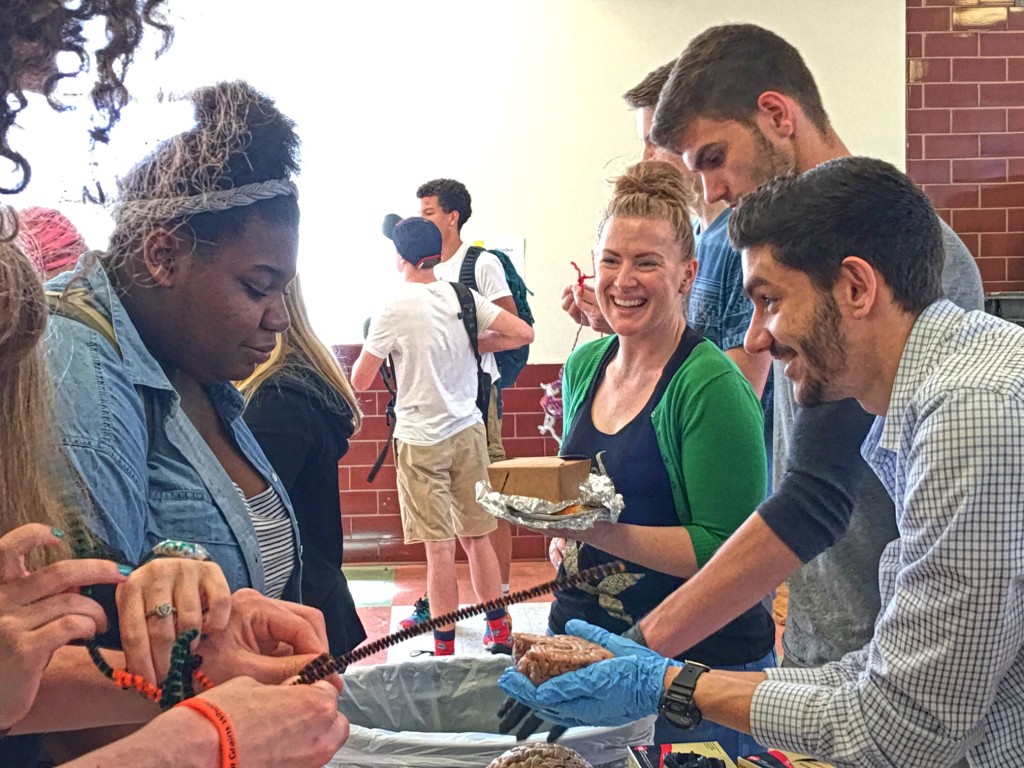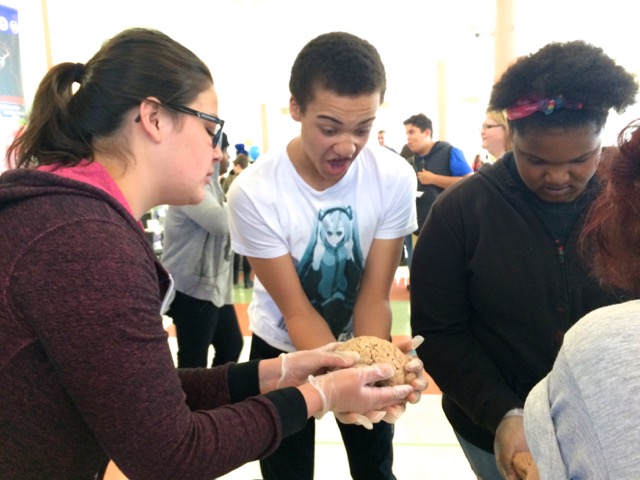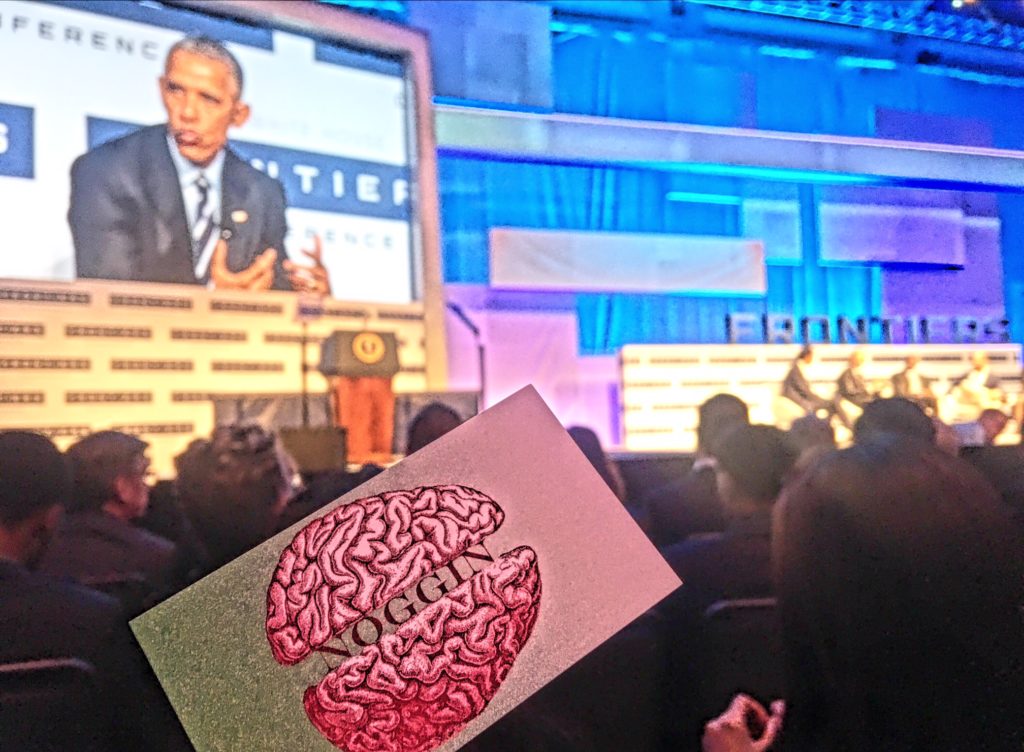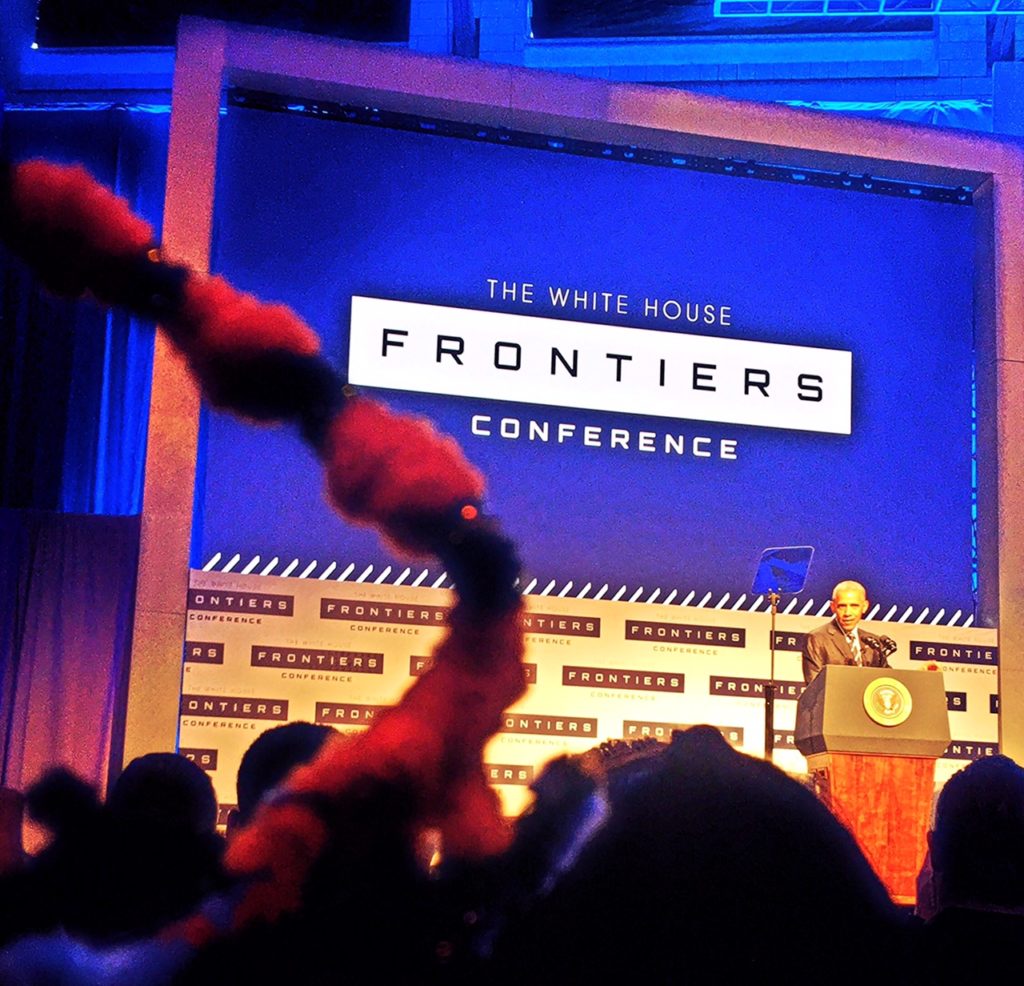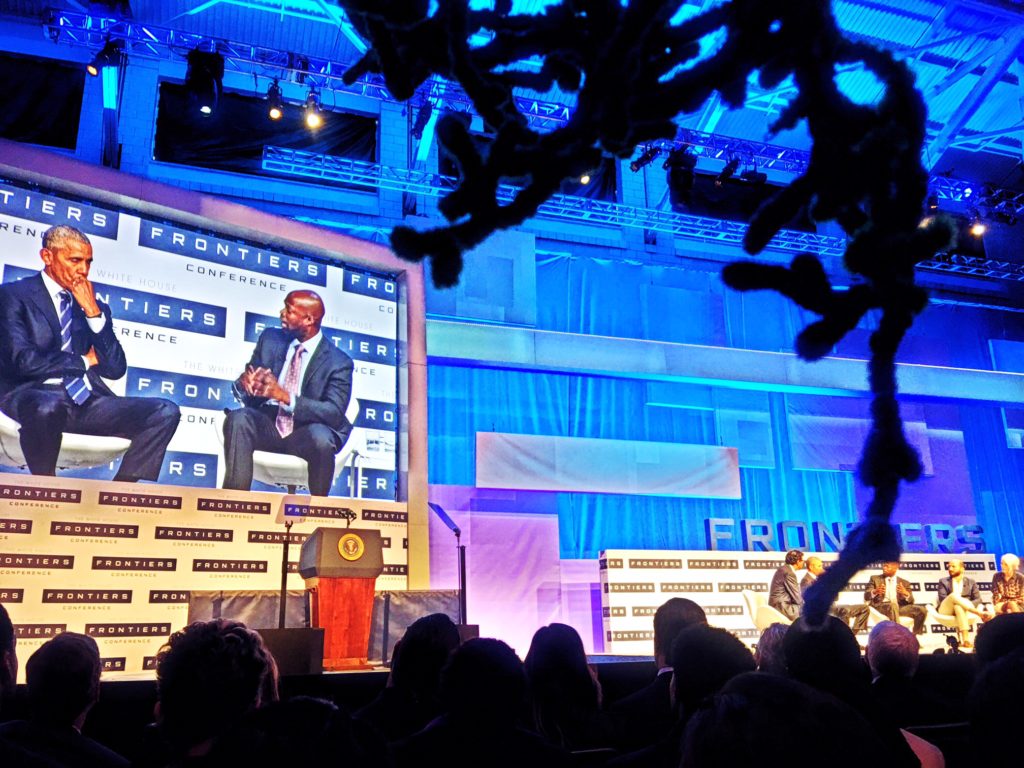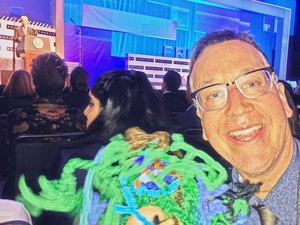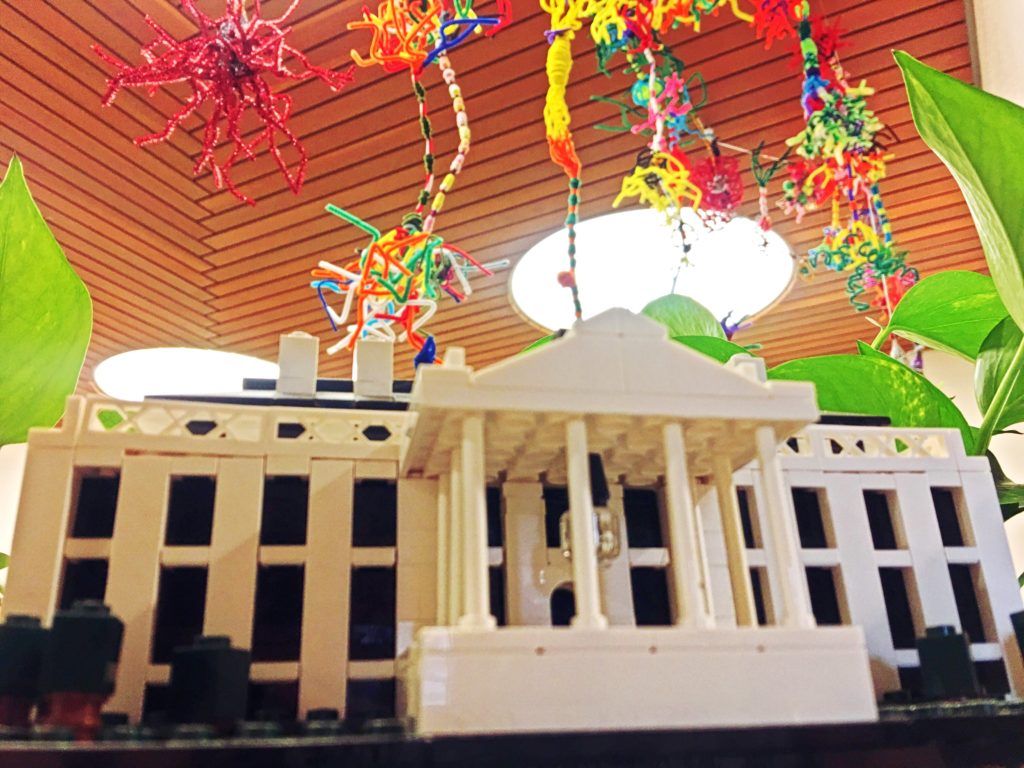“Societies in which we are able to unify ourselves around values and ideals and character and how we treat each other and cooperation and innovation…are gonna be more successful than societies that don’t”
-Barack Obama
The White House Frontiers Conference brought together some of the world’s leading innovators in Pittsburgh this week to discuss how investing in science and technology frontiers will help improve lives, and keep America and Americans on the cutting edge of innovation…
LEARN MORE: White House Frontiers
Incredible advances in brain tech, robotics, Mars exploration, and maker education on display at #WHFrontiers https://t.co/M053myRu3n pic.twitter.com/ThKY9m1wRl
— N.W. Noggin (@NWNoggin) October 13, 2016
President Obama hosted the conference, and will also guest edit the November issue of Wired magazine, to highlight such critical frontiers as medicine, technology, brain science, and education…
LEARN MORE: Obama to Guest-Edit Wired Magazine
LEARN MORE: The BRAIN Initiative
Bill Griesar and Jeff Leake from NW Noggin were among the 500 innovators invited by the White House Office of Science & Technology Policy to attend this inspiring and thought-provoking event. We were honored and excited to find ourselves in Pittsburgh, thanks to support from Portland State University…
We brought along our pipe cleaner brain cells, and leaped at the opportunity to learn about cutting edge work in personal, local, national, international and interplanetary frontiers, and share our own experience with accomplished NW Noggin volunteers from PSU, OHSU and other area institutions, who tirelessly promote federal investment in brain research through arts-integrated STEM outreach in the Pacific Northwest…
The conference began with a line up of motivating and influential speakers, including the inventor Dean Kamen, Fitbit cofounder James Park, the Chief Medical Officer of Pfizer Freda C. Lewis-Hall, Columbia University neuroscientist Rafael Yuste, 3D printing artist and activist for open access to personal health data Steven Keating, and cellist and composer Zoë Keating…
After lunch we enjoyed a succession of prominent plenary speakers, including Dava Newman, the Deputy Administrator of NASA, Raj Chetty, a Stanford economist, and University of Georgia undergraduate and community activist Charles Orgbon III, who presented fascinating data concerning innovations, from the personal to the interplanetary, and who challenged the audience to consider (in the words of O’Reilly Media CEO Tim O’Reilly) “wtf” – or “what’s the future?”
“Hello beautiful nerds” – Roman Mars @ #WHFrontiers #STEAM #nwnoggin Innovation & innovators in @CityPGH https://t.co/yaiKkaKpZP pic.twitter.com/RCS1G5CJf1
— N.W. Noggin (@NWNoggin) October 13, 2016
Waiting for our nation’s Frontal Lobe in Chief! (And frontal lobes to come ?) https://t.co/M053myRu3n pic.twitter.com/8BgYsdUCc2
— N.W. Noggin (@NWNoggin) October 13, 2016
And then the Cerebrum in Chief stepped up to the Presidential podium!
Barack Obama captivated and energized the crowd with his stirring enthusiasm for science, and discovery – and explained that the compelling innovation on display in Pittsburgh is embedded “in our DNA.” Not many countries, he said, were founded by inventors like Benjamin Franklin, willing to fly a kite in a lightning storm to uncover the secrets of electricity!
The President also noted that innovators aren’t always welcomed by large institutions, which may decide that preserving a complex, ineffective administrative structure is their primary mission, and not support creative new approaches that address what they initially set out to do (we’ve worked for a corporate university branch campus, and know exactly what he meant!)…
“Change is freedom, change is life.
It’s always easier not to think for oneself. Find a nice safe hierarchy and settle in. Don’t make changes, don’t risk disapproval, don’t upset your syndics. It’s always easiest to let yourself be governed.
There’s a point, around age twenty, when you have to choose whether to be like everybody else the rest of your life, or to make a virtue of your peculiarities.
Those who build walls are their own prisoners. I’m going to go fulfil my proper function in the social organism. I’m going to go unbuild walls.”
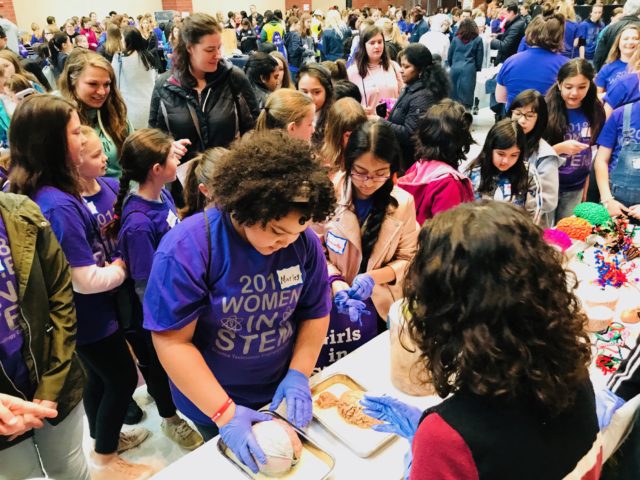
Here’s one line from the President that we’ll repeat to our students often: “”I’m a science geek. I’m a nerd, and I don’t make any apologies for it.”
“I am a science geek. I’m a nerd, and I don’t make any apologies for it.” —@POTUS: https://t.co/SsqBlWPetL #WHFrontiers pic.twitter.com/o3aA2oIAG5
— The White House (@WhiteHouse) October 14, 2016
After a rousing introductory presentation, the President joined a panel, moderated by celebrated surgeon, writer and public health researcher Atul Gawande, to further discuss frontiers, including specific steps required to make progress in personalized medicine, planetary exploration and brain science. Dr. Gawande introduced the President as “a lawyer to my left..!”
It was a riveting, transformative experience, and we’ll be thinking particularly of ideas raised by Kafui Dzirasa, a compelling neuroscientist from Duke University with evident enthusiasm for school and community outreach…
Dr. Dzirasa succinctly and brilliantly deconstructed the experience of answering a question (“are you excited to vote in this next election?”) into the precise distribution of sensory information along specific pathways and networks in the brain that underlie your particular response..!
After the panel discussion, we moved to the rope barrier, and had the remarkable opportunity to shake the President’s hand. I briefly noted that we spent a lot of time in classrooms exciting students about brain research with these pipe cleaner neurons (festooned on myself and Jeff, and Katie Sale, Executive Director of the American Brain Coalition)…
And the President replied: “I LOVE those!”
So many thanks to Robbie Barbero and the White House Office of Science & Technology Policy for inviting us to participate in this inspiring event!!
The President’s remarks from his radio address on October 15…
Remarks of President Barack Obama as Delivered
Weekly Address
The White House
October 15, 2016
Hi everybody. On Thursday, I traveled to Pittsburgh for the White House Frontiers Conference, where some of America’s leading minds came together to talk about how we can empower our people through science to lead our communities, our country, and our world into tomorrow.
Plus, we had some fun. I had a chance to fly a space flight simulator where I docked a capsule on the International Space Station. I met a young man who’d been paralyzed for more than a decade – but thanks to breakthrough brain implants, today, he can not only move a prosthetic arm, but actually feel with the fingers.
It’s awe-inspiring stuff. And it shows how investing in science and technology spurs our country towards new jobs and new industries; new discoveries that improve and save lives. That’s always been our country’s story, from a Founding Father with an idea to fly a kite in a thunderstorm, to the women who solved the equations to take us into space, to the engineers who brought us the internet. Innovation is in our DNA. And today, we need it more than ever to solve the challenges we face. Only through science can we cure diseases, and save the only planet we’ve got, and ensure that America keeps its competitive advantages as the world’s most innovative economy.
That’s why it’s so backward when some folks choose to stick their heads in the sand about basic scientific facts. It’s not just that they’re saying that climate change a hoax or trotting out a snowball on the Senate floor. It’s that they’re also doing everything they can to gut funding for research and development, the kinds of investments that brought us breakthroughs like GPS, and MRIs, and put Siri on our smartphones.
That’s not who we are. Remember, sixty years ago, when the Russians beat us into space, we didn’t deny Sputnik was up there. We didn’t haggle over the facts or shrink our R&D budget. No, we built a space program almost overnight and beat them to the moon. And then we kept going, becoming the first country to take an up-close look at every planet in the solar system, too. That’s who we are.
And that’s why, in my first inaugural address, I vowed to return science to its rightful place. It’s why in our first few months, we made the largest single investment in basic research in our history. And it’s why, over the last eight years, we’ve modernized the government’s approach to innovation for the 21st Century. We’ve jumpstarted a clean energy revolution and unleashed the potential of precision medicine. We’ve partnered with the private sector and academia, and launched moonshots for cancer, brain research, and solar energy. We’ve harnessed big data to foster social innovation and invested in STEM education and computer science so that every young person – no matter where they come from or what they look like – can reach their potential and help us win the future.
That’s what this is about – making sure that America is the nation that leads the world into the next frontier. And that’s why I’ve been so committed to science and innovation – because I’ll always believe that with the right investments, and the brilliance and ingenuity of the American people, there’s nothing we cannot do.
Thanks everybody. Have a great weekend.
LEARN MORE: STEAMing to DC!





